- Home
- entertainment
- news
- The career rise of 'Avatar' director James Cameron, from a flop 'Piranha' sequel to making 2 of the biggest movies of all time
The career rise of 'Avatar' director James Cameron, from a flop 'Piranha' sequel to making 2 of the biggest movies of all time
- James Cameron directed two of the top 10 biggest movies of all time, "Titanic" and "Avatar."
- "Avatar's" long-awaited sequel, "The Way of Water," comes to theaters in December.
James Cameron, 67, quit his job as a truck driver after seeing the original "Star Wars" in 1977, when he was in his early 20s. It inspired him to pursue filmmaking.
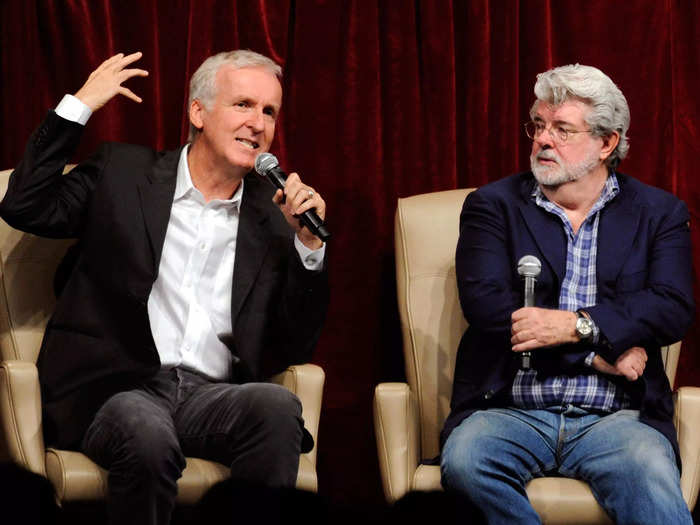
"I got really energized by 'Star Wars,'" Cameron said during a documentary short titled "The Force Is With Them."
"It gave me a big sort of kick up the backside to get going as a filmmaker," he added.
Over the course of his career, Cameron and "Star Wars" creator George Lucas became friends, and Cameron has defended Lucas' vision before — even the much derided prequel trilogy.
A year after "Star Wars," Cameron and a friend, Randall Frakes, raised $20,000 from a group of dentists in California to make a sci-fi short film called "Xenogenesis."
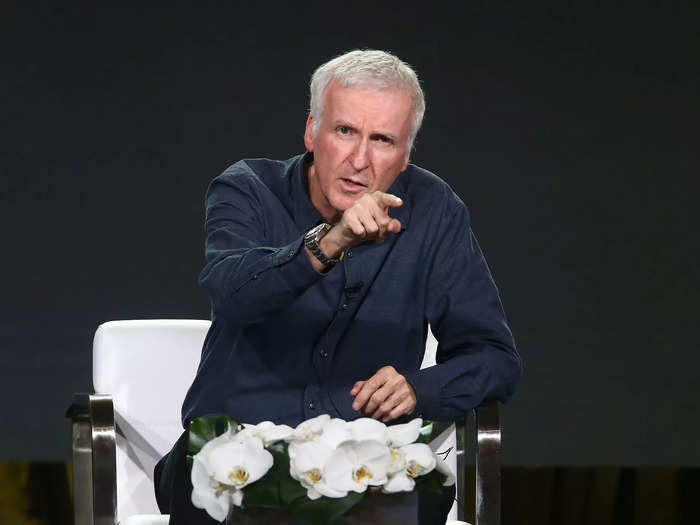
The short was conceived as a pitch for a feature-length film, according to Slashfilm.
While that plan didn't pan out, much of the short's themes and visual sensibilities can be seen in Cameron's other work. He told Slashfilm last year that it might be worth revisiting for more inspiration.
"Well, I'm like the Native American tribe that kills the bison and uses every part of it," he said. "I think there might be still some stuff back there in 'Xenogenesis.'"
"Xenogenesis" landed Cameron a job at the now-defunct New World Pictures, founded by producer Roger Corman, where he worked on special effects for movies like 1980's "Battle Beyond the Stars" and 1981's "Galaxy of Terror."

In an interview with the Academy of Achievement, Cameron talked about how his experience at New World prepared him for a career in filmmaking.
"I sort of proved myself as a production designer in the scrappy, stay-all-night-for-15-days-in-a-row kind of independent filmmaking that was done at Roger Corman's place," Cameron said. "This was in the early '80s. And when they see that you have the creativity and the stamina, and that you basically understand filmmaking, it's not a ridiculous leap in that environment to say, 'I now want to try my hand. I want to direct.'"
Cameron's first feature credit was "Piranha II: The Spawning" in 1981.
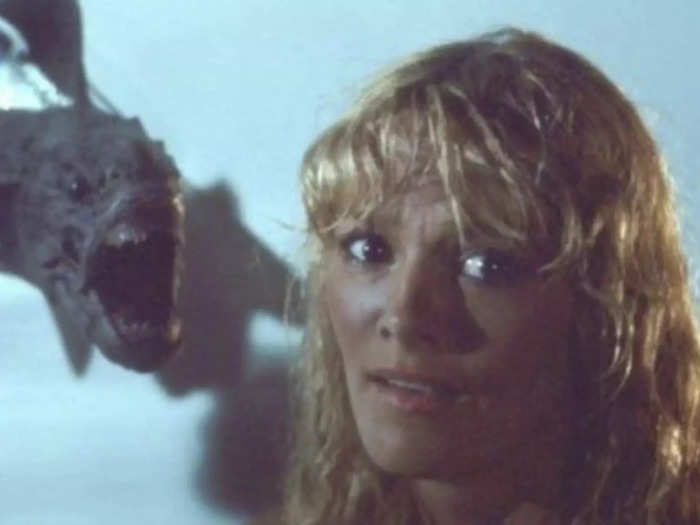
While Cameron is the credited director of the movie, he was fired during filming by producer Ovidio Assonitis. (Cameron himself had been hired to replace the film's original director, Miller Drake, so this movie had a rough production.)
"I was hired by a very unscrupulous producer who worked out of Italy," Cameron told the Academy of Achievement. "He put me with an Italian crew who spoke no English, even though I was assured that they would all speak English. I actually had to learn some Italian very quickly, I'm talking about in two weeks. That's all the prep time I had, because I was actually replacing someone else. I was put into an untenable situation and then fired a couple of weeks into the shoot, and the producer took over directing."
The movie was a dud, and has a 6% critic score on Rotten Tomatoes.
Cameron didn't let his "Piranha II" experience derail his career, though. He went on to write and direct his breakthrough movie: 1984's "The Terminator."
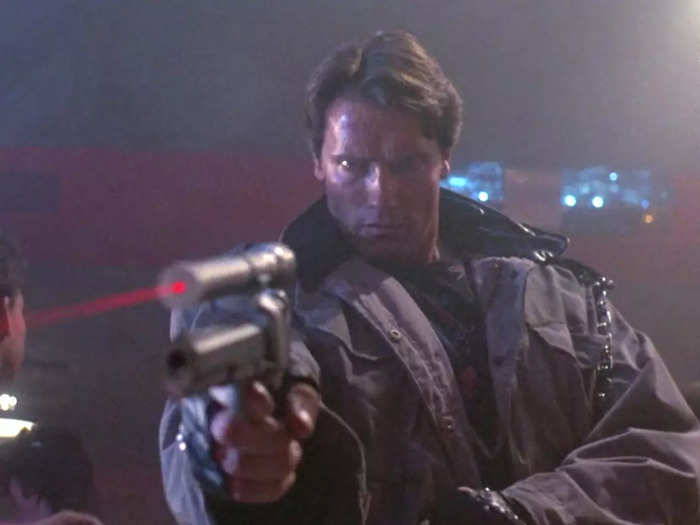
"Terminator," starring Arnold Schwarzenegger as a cyborg assassin sent from the future to kill the mother of humanity's savior, was partially inspired by the success of the 1978 horror movie "Halloween," according to Den of Geek.
"My contemporaries were all doing slasher-horror movies," Cameron once said. "John Carpenter was the guy I idolized the most. He made 'Halloween' for $30,000 or something. That was everyone's break-in dream, to do a stylish horror movie. It was a very slasher film-type image. And it really was the launching pad for the story."
Cameron told the Academy of Achievement that he was also inspired to write "Terminator" after the failure of "Piranha II," because it was the only way he'd be able to direct again.
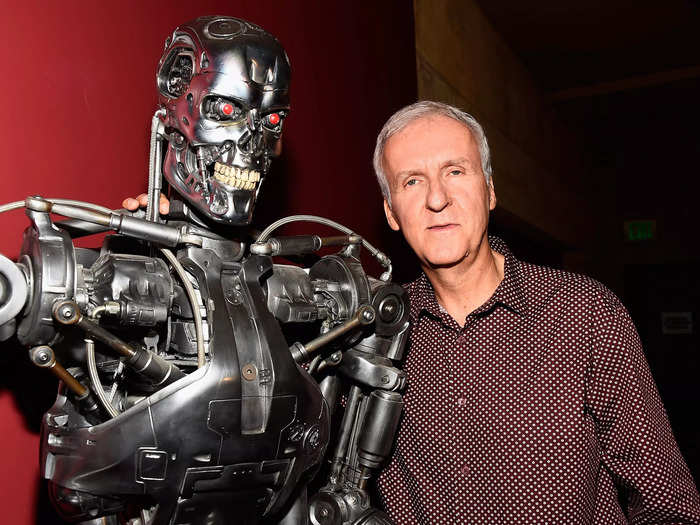
"Nobody would hire me and just put me on a film," Cameron told the Academy of Achievement. "I'd have to create my own thing and hang on tenaciously to that in order to be able to direct again, and that's why I wrote 'The Terminator.'"
"I had many, many people trying to buy that script, but I wouldn't sell the script to them unless I went with it as the director," Cameron added. "Of course that was a turn-off for almost everybody."
Cameron sold the rights to producer Gale Ann Hurd (who he would later marry before divorcing in 1989) for one dollar, on the condition that he could direct it.
"Terminator" earned $38 million in the US off of a $6 million budget, according to Box Office Mojo. (In today's dollars, this is the equivalent of $109 million.) The movie spawned several sequels, a TV series, and video games.
After the success of "Terminator," Cameron had his pick of projects — so much so that he ended up writing sequels to "Alien" and the Rambo movie "First Blood" at the same time.
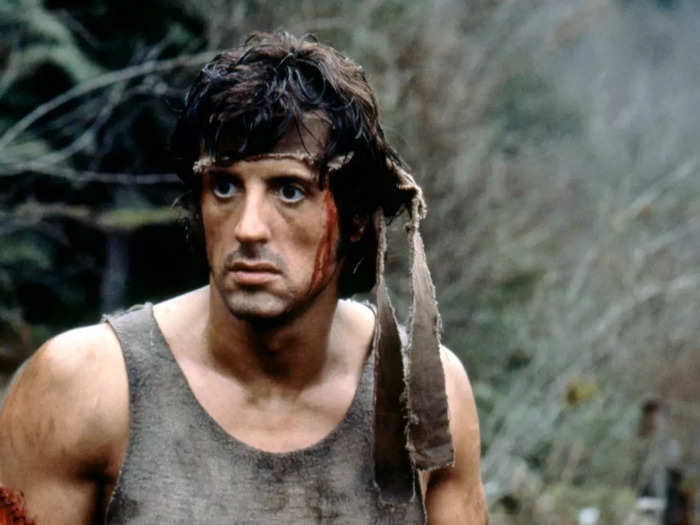
In the documentary "The Inspiration and Design of Aliens," Cameron said that he got the jobs to write "First Blood Part II" and "Aliens" on the same day.
"I took both jobs and I had a three month period to write Rambo and what became 'Aliens,'" he said. "So what I did was I got a desk for each script. I put one in the bedroom and one in the living room. That way when I moved from one desk to the other, all the notes and papers and everything were right where they were supposed to be."
Cameron would go on to also direct "Aliens," which was released in 1986 and cemented him as one of the great sci-fi and action filmmakers.
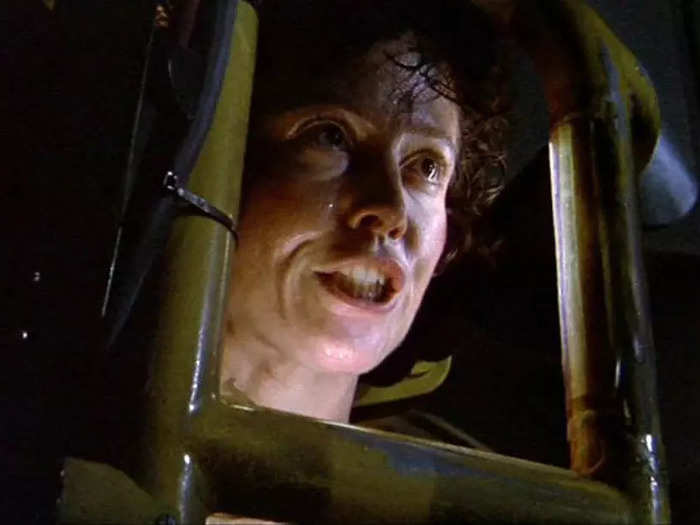
"Aliens" grossed $85 million in the US (the equivalent of $230 million today, after adjusting for inflation) and was nominated for seven Oscars. It won two the seven: one award for visual effects and another for sound effects.
After "Aliens," Cameron made "The Abyss," another sci-fi movie about a diving team that finds aliens.
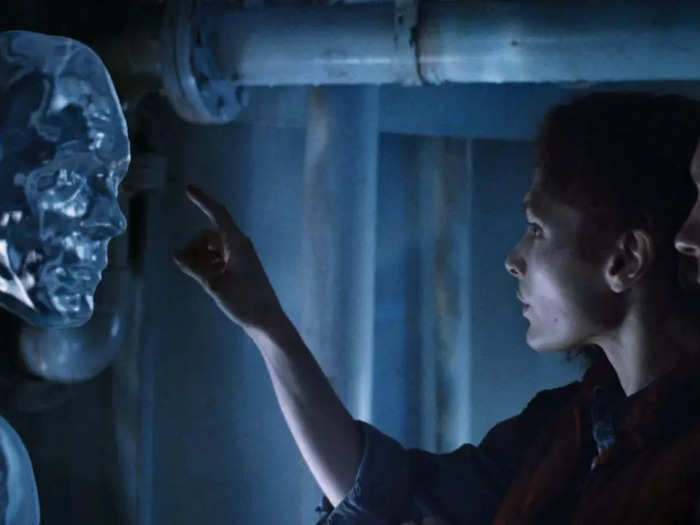
"The Abyss," which was once again produced by Gale Ann Hurd, earned $130 million at the US box office in today's dollars, after adjusting for inflation.
The production was arduous on the cast, though, and a sign of Cameron's perfectionism as a filmmaker that he's become known for.
"I want total control,'' he told The New York Times in 1989 for a story about the making of the movie.
Actors described the slow process of making the film: " We never started and finished any one scene in any one day," Mary Elizabeth Mastrantonio told the Times.
The movie was close to Cameron's heart. According to the Times' story, he discovered scuba diving as a teenager and saw it as "the keys to another world." He seems to be bringing that passion over to his upcoming "Avatar" sequel, "Avatar: The Way of Water."
In 1991, seven years after the first "Terminator," Cameron's sequel, "Terminator 2: Judgement Day" was released.
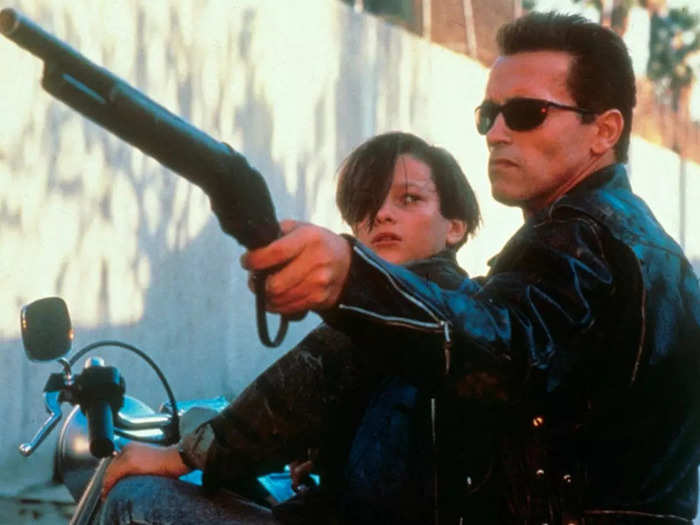
"Terminator 2: Judgement Day" was a smash hit, making $205 million in the US, which would be $448 million today.
Released over July 4 weekend, the movie set a precedent for the "summer blockbuster" season that continues today.
Earlier this year, Vulture ranked it No. 34 on its list of the greatest movie sequels ever made.
Cameron followed "Judgement Day" up with another Schwarzenegger collaboration, "True Lies," an action-comedy, in 1994.
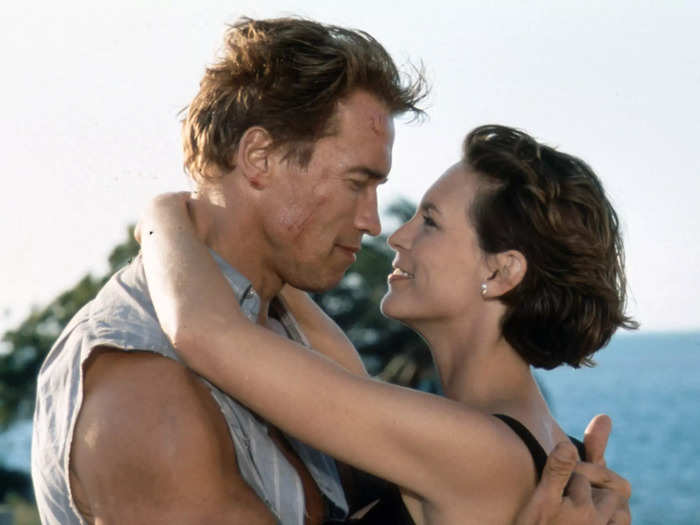
It was another hit, making nearly $300 million in the US in today's dollars.
After a string of successes, Cameron made his biggest hit to date in 1997: "Titanic."
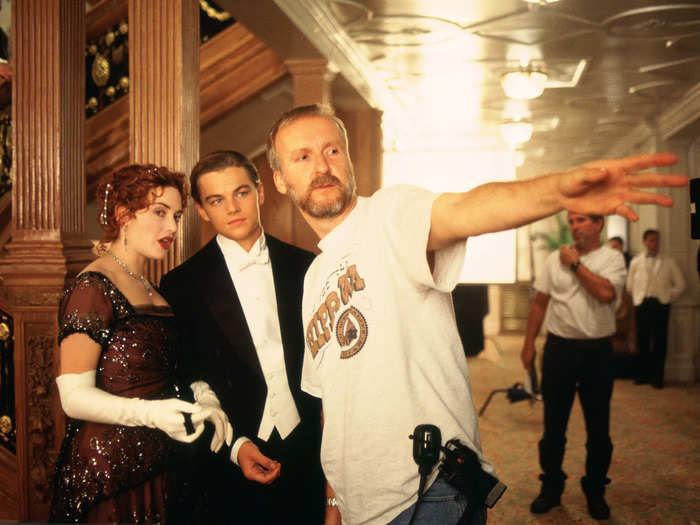
"Titanic" was the highest-grossing movie in the world of all time (before inflation) for 12 years, and it would only be dethroned by Cameron's followup, "Avatar."
The movie earned $2.2 billion at the global box office, and won 11 Oscars, including best picture and director for Cameron.
At the time of its release, it was the most expensive movie ever made, with a production budget of $200 million.
The story appealed to Cameron's aforementioned love of diving and deap-sea exploration. He even asked the head of 20th Century Fox at the time for $2 million to fund an expedition to see the ship's wreckage in 1995, according to BuzzFeed News.
After "Titanic," despite its monumental success, Cameron wouldn't direct another scripted feature for 12 years.
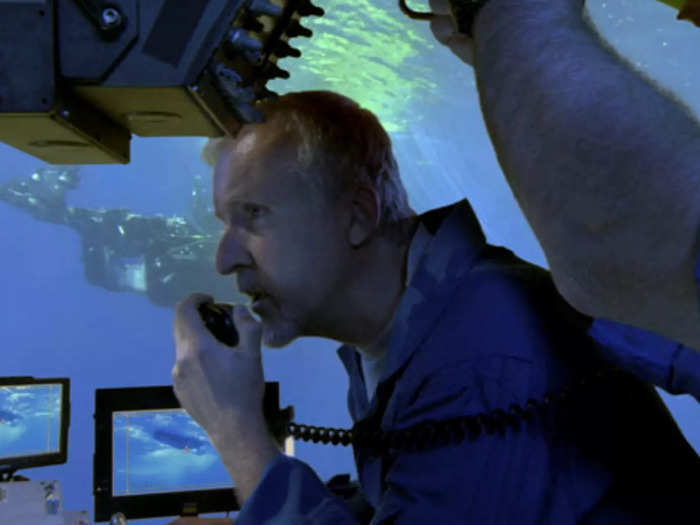
He instead worked on passion projects, including documentaries like "Ghosts of the Abyss" about the Titanic wreckage and "Aliens of the Deep" about deep-sea creatures.
Cameron finally returned to the director's chair with "Avatar." After its release in 2009, it topped "Titanic" as the highest-grossing movie of all time.
"Avatar" grossed $2.8 billion globally, the most of any movie ever (before adjusting for inflation). It was briefly dethroned in 2019 by "Avengers: Endgame," but "Avatar" reclaimed its crown last year with a re-release in China.
After "Avatar," Cameron took another directing hiatus. In 2019, he co-wrote "Alita: Battle Angel," but handed off directing duties to Robert Rodriguez.
Later in 2019, Cameron returned to the "Terminator" universe with 2019's "Terminator: Dark Fate" as a producer.

Cameron also conceived of the movie's story. "Dark Fate," which was directed by "Deadpool" director Tim Miller and reunited the original movie's stars Linda Hamilton and Schwarzenegger, was the only "Terminator" sequel Cameron had been involved with since "Judgement Day."
Cameron told Deadline ahead of the movie's release that there was a plan for a new trilogy of "Terminator" movies, but it depended on its box office performance.
The movie disappointed financially, earning $261 million worldwide (including just $62 million in the US) off of a $185 million budget.
Over the last 14 years since "Avatar" was released, Cameron has conceived of four sequels, which will be released in 2022, 2024, 2026, and 2028, respectively.
The movies will be released by Disney, which acquired the franchise in its purchase of 21st Century Fox in 2019.
The first of the sequels, "Avatar: The Way of Water," comes to theaters in December 2022. Movie theater execs told Insider they are optimistic the movie will end the year strong at the box office.
The third "Avatar" movie has already been shot, but Cameron recently told Empire Magazine that he's open to another director making the fourth and fifth movies.
"The 'Avatar' films themselves are kind of all-consuming," Cameron said. "I've got some other things I'm developing as well that are exciting. I think eventually over time — I don't know if that's after three or after four — I'll want to pass the baton to a director that I trust to take over, so I can go do some other stuff that I'm also interested in. Or maybe not. I don't know."
If there's one thing the last nearly three decades has taught moviegoers, it's to never underestimate James Cameron.
READ MORE ARTICLES ON
Popular Right Now
Advertisement